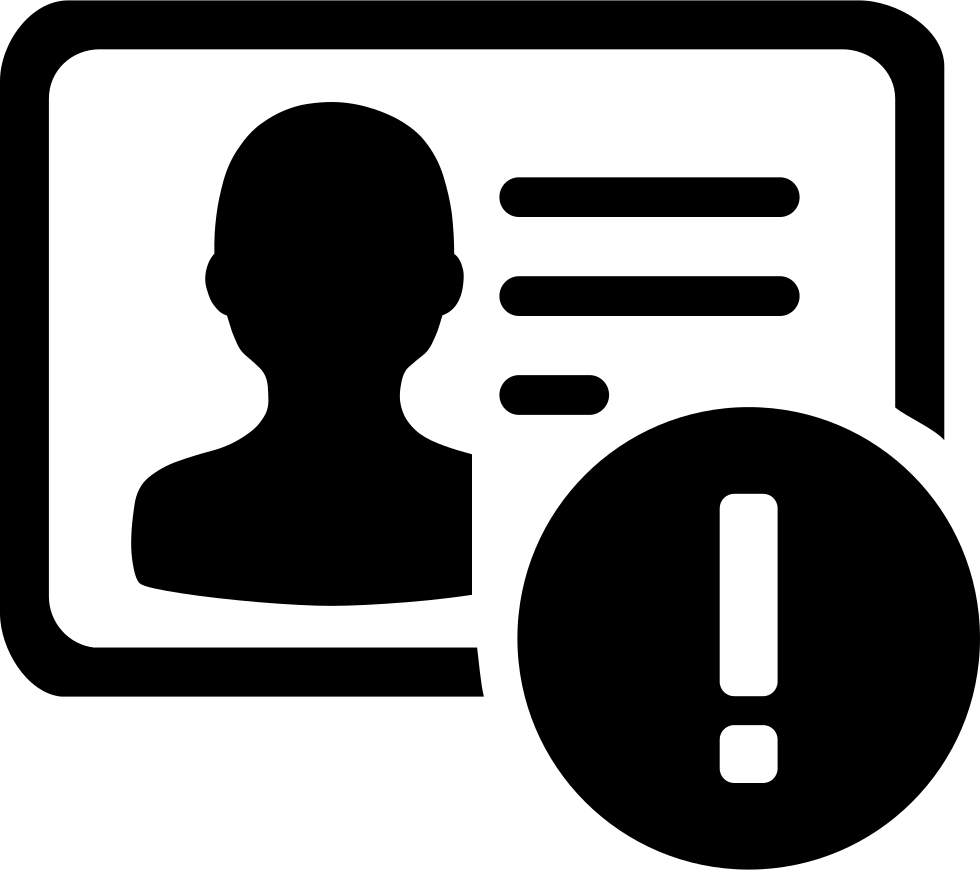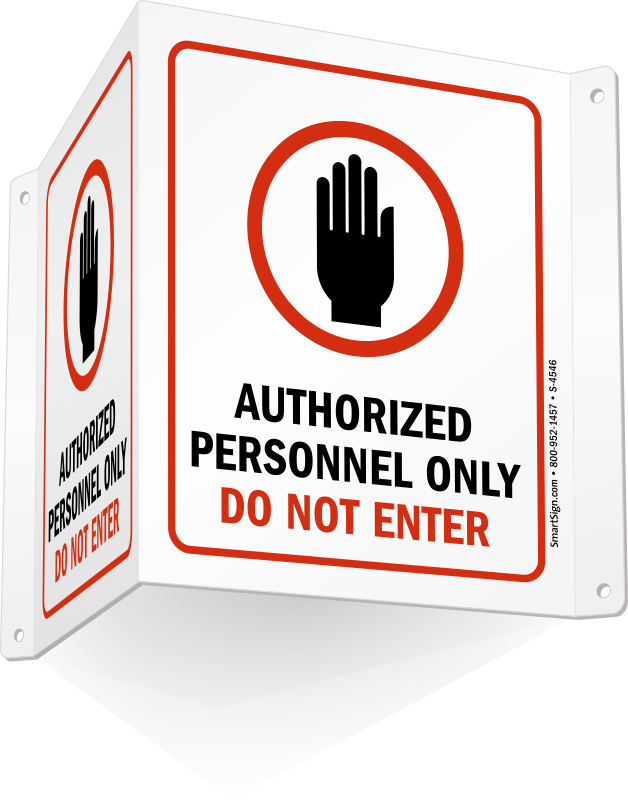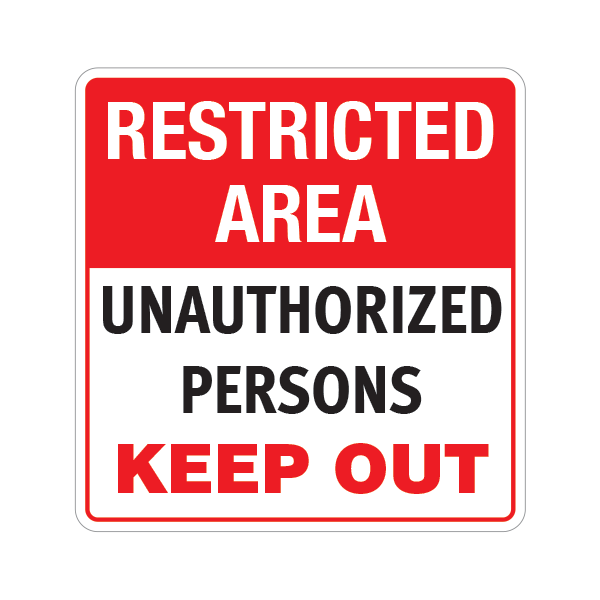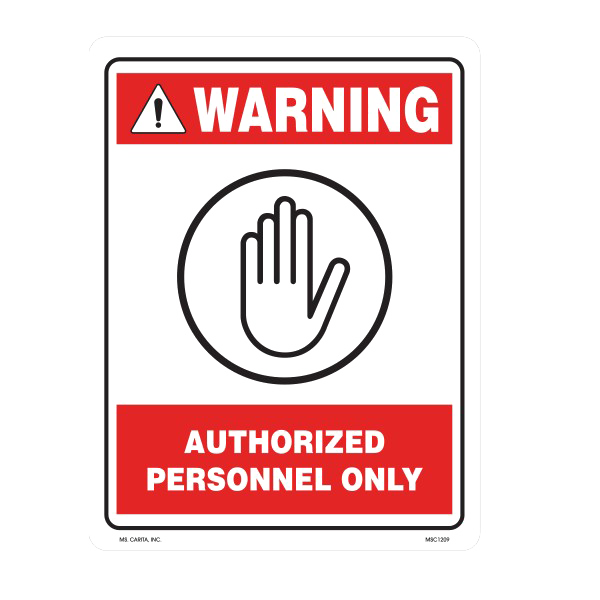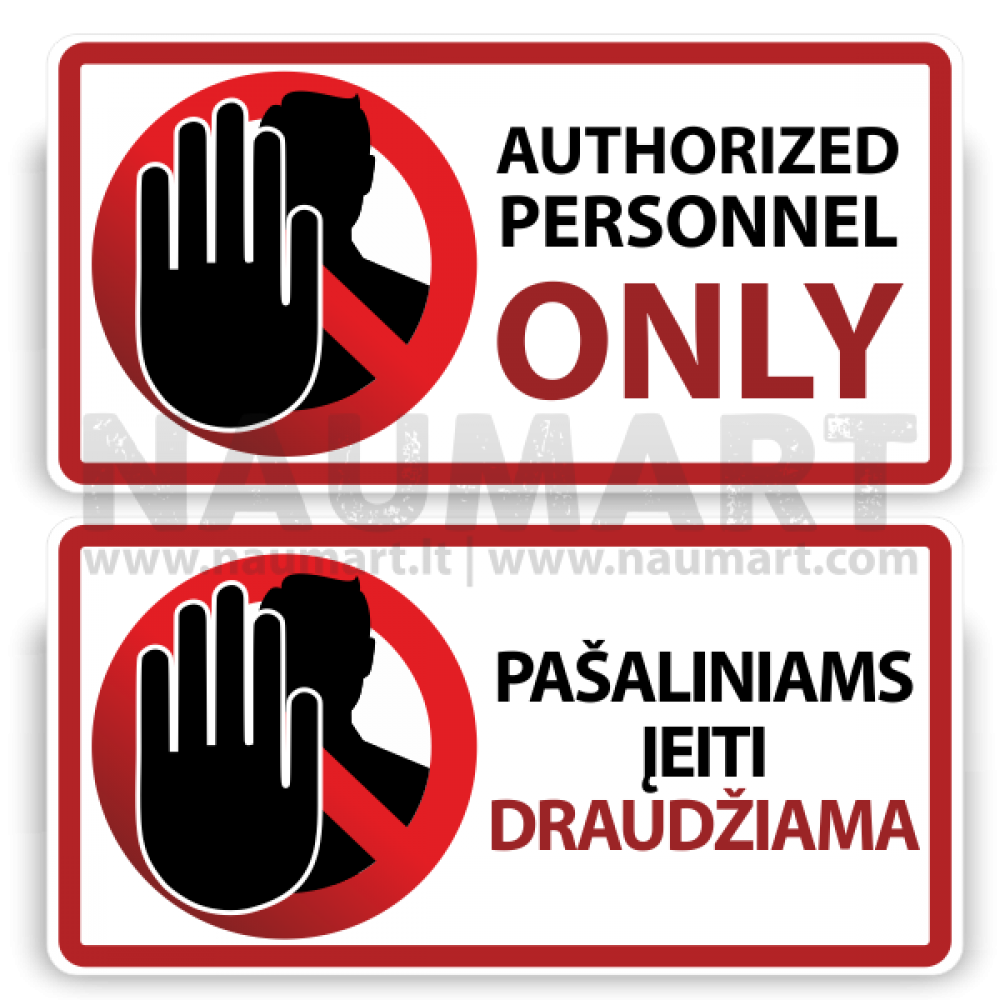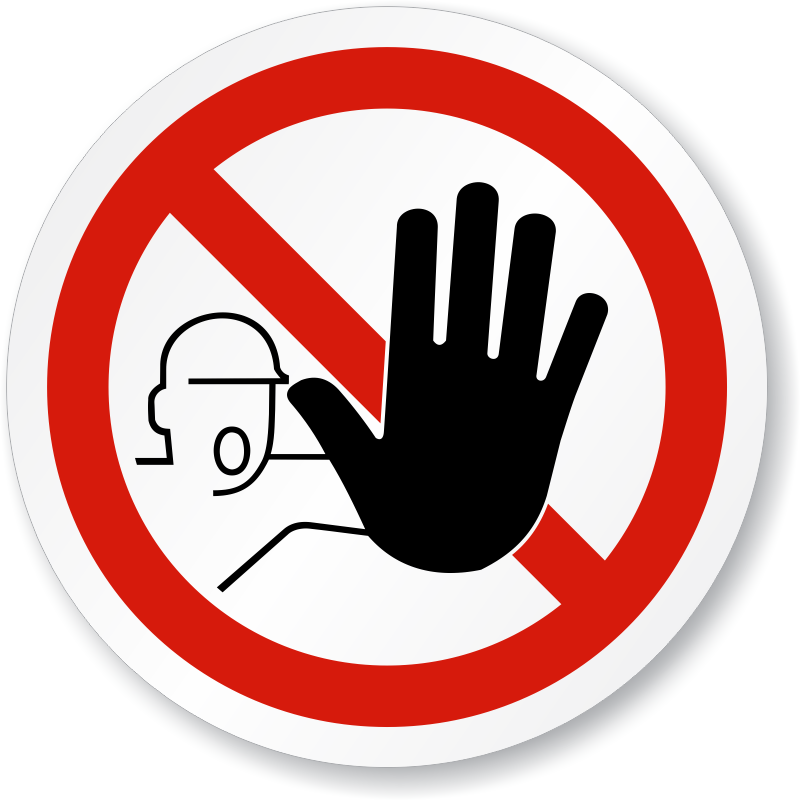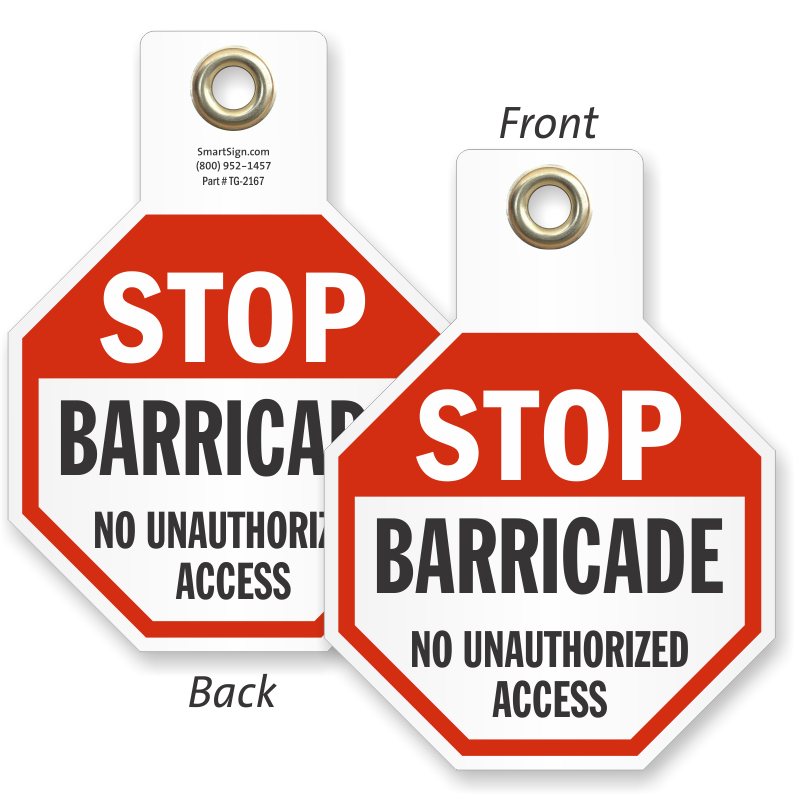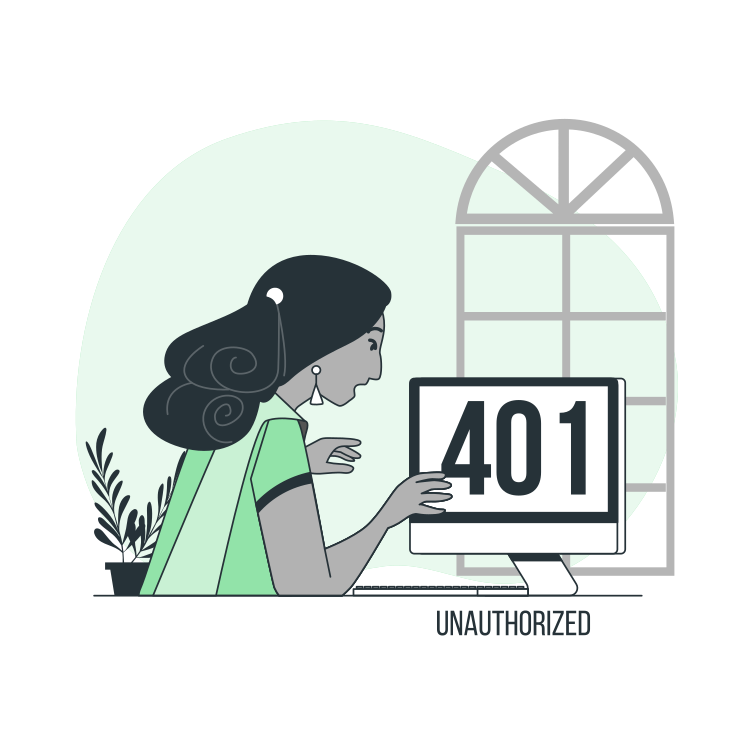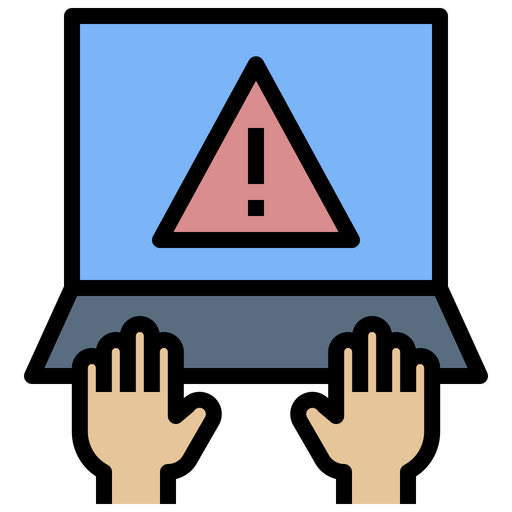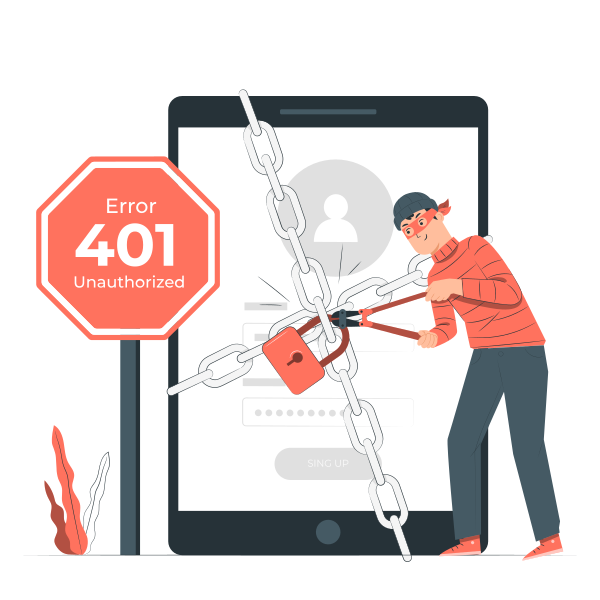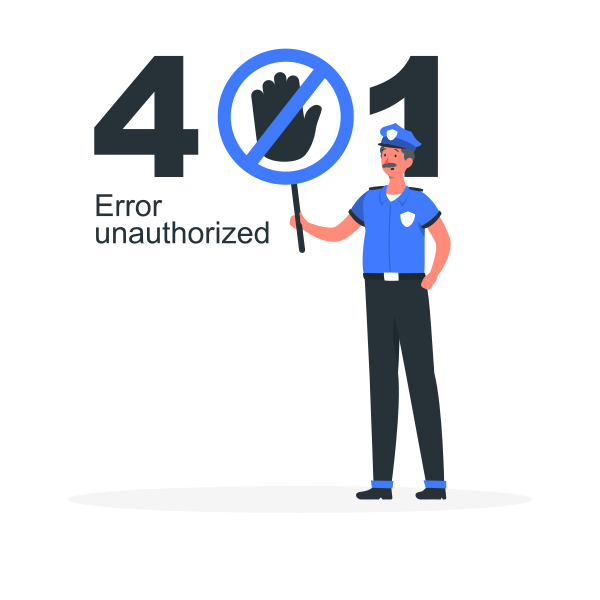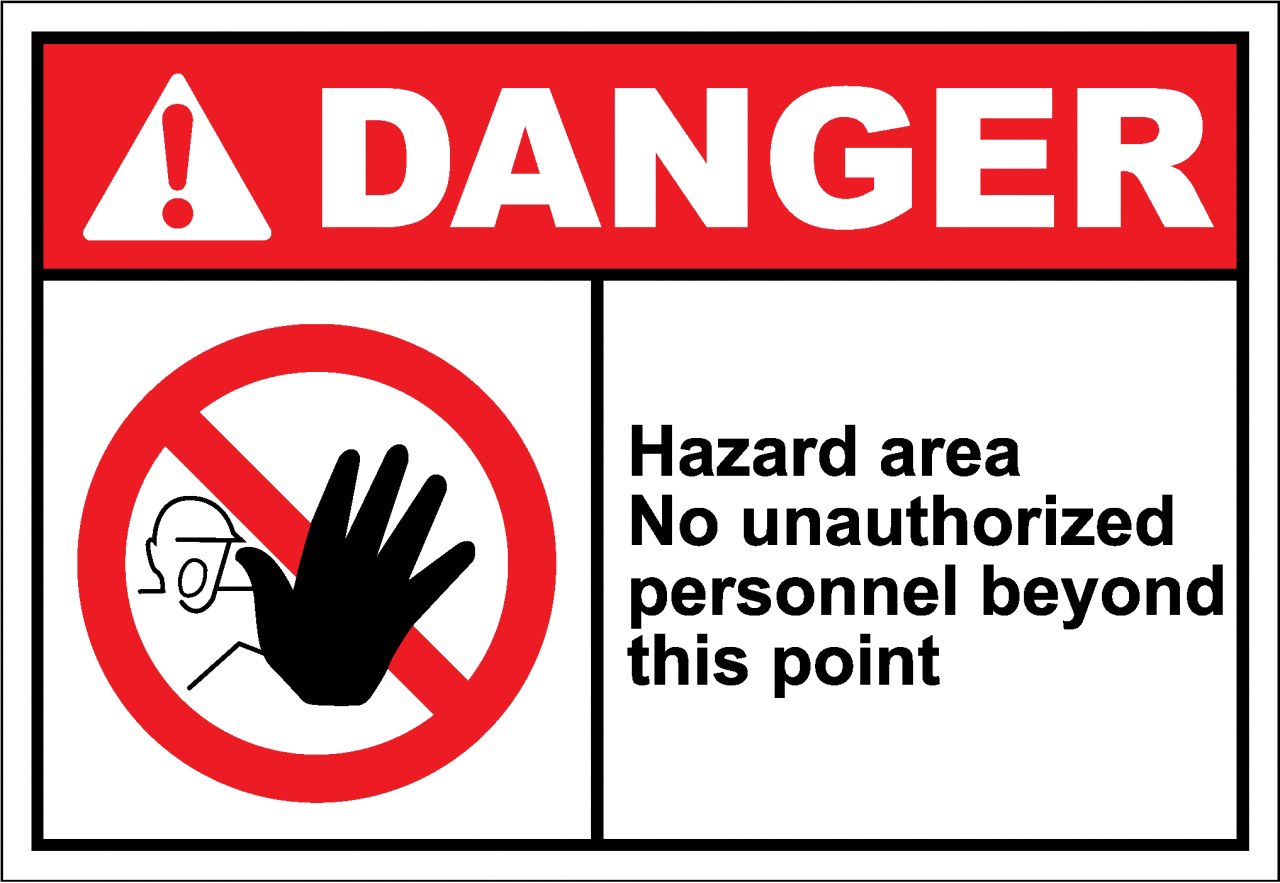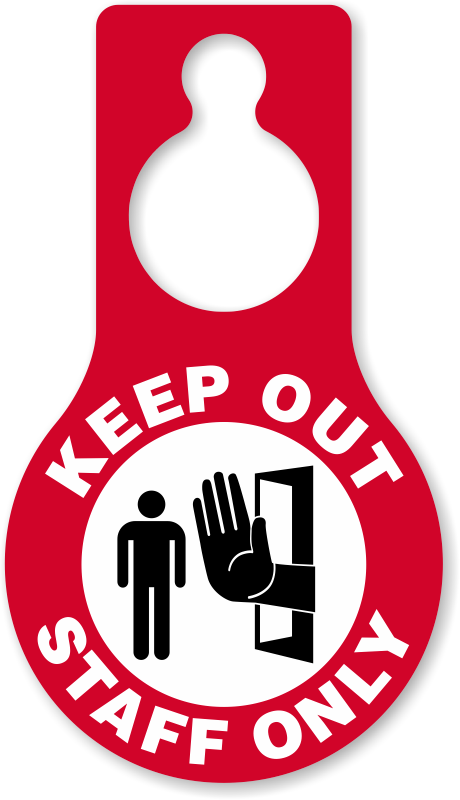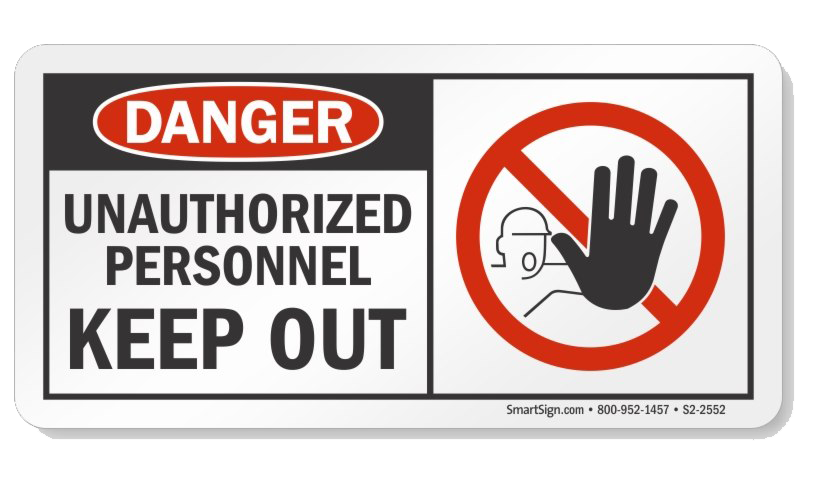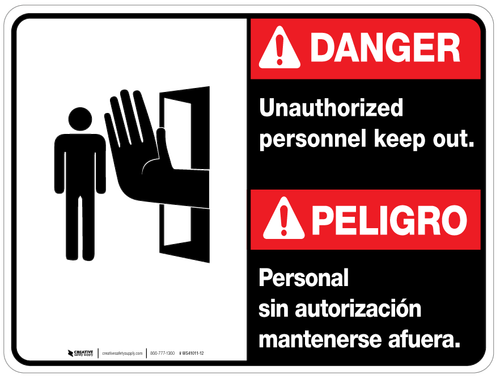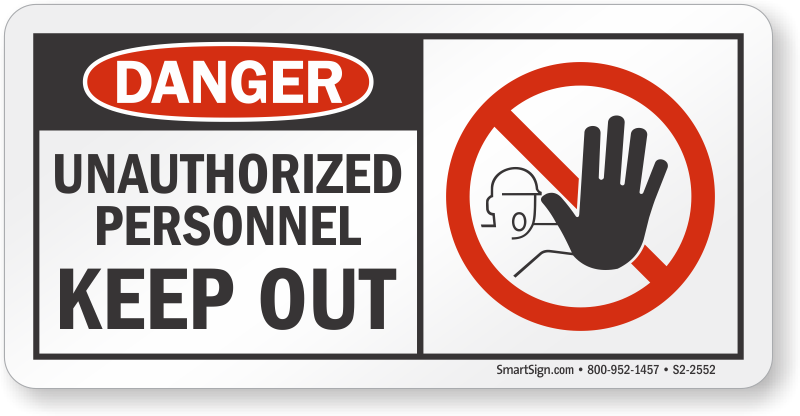Download top and best high-quality free Unauthorized PNG Transparent Images backgrounds available in various sizes. To view the full PNG size resolution click on any of the below image thumbnail.
License Info: Creative Commons 4.0 BY-NC
Authorization is the process of defining access rights/privileges to resources, which is connected to information security in general and computer security in particular, as well as access control. To define an access policy, “to authorize” is a more formal term. Human resources personnel, for example, are often granted access to employee records, and this policy is frequently codified as access control rules in a computer system. The system employs access control rules to determine whether access requests from (authenticated) customers are authorized (granted) or denied during operation (rejected). Individual files or an item’s data, computer programs, computer equipment, and computer application capabilities are all examples of resources. Computer users, computer software, and other computer hardware are examples of customers.
Access policies are used to manage access to computer systems and networks. The access control process is separated into two phases: policy definition and policy enforcement. In the policy definition phase, access is granted, and in the policy enforcement phase, access requests are approved or denied. Authorization is a function of the policy definition phase, which comes before the policy enforcement phase, in which access requests are accepted or denied depending on the authorizations that have been specified before.
Role-based access control (RBAC) is used in most current multi-user operating systems, which rely on authorisation. Authentication is also used in access control to authenticate the identity of customers. When a customer attempts to use a resource, the access control mechanism verifies that the customer is permitted to do so. Within the application domain, authorization is the duty of an authority, such as a department manager, although it is frequently assigned to a custodian, such as a system administrator. In some forms of “policy definition applications,” such as an access control list or a capability, or a policy administration point, such as XACML, authorizations are described as access policies. Consumers should only be allowed access to what they need to execute their jobs, according to the “principle of least privilege.” Authentication and access control methods on older and single-user operating systems were frequently inadequate or non-existent.
Consumers who are not needed to verify are referred to as “anonymous consumers” or “guests.” They frequently have little authority. On a distributed system, it’s common to want to provide people access without requiring them to have a unique identity. Access tokens, such as keys, certificates, and tickets, provide access without requiring proof of identification.
Trusted consumers are frequently granted unfettered access to system resources, but they must be validated before the access control system may approve their access. In order to safeguard resources from improper access and usage, “partially trusted” and guests will frequently have restricted authorisation. Some operating systems’ default access policies provide all users unlimited access to all resources. Others, on the other hand, require that a consumer be expressly authorized to utilize each resource by the administrator.
Even when access is restricted using a mix of authentication and access control lists, keeping authorization data is a significant administrative cost that typically outweighs handling login credentials. Changing or removing a user’s authorisation is frequently required, and this is accomplished by altering or deleting the associated access rules on the system. Atomic authorisation is an alternative to per-system authorization management, in which authorization information is safely distributed by a trusted third party.
Download Unauthorized PNG images transparent gallery
- Unauthorized Access PNG
Resolution: 980 × 870
Size: 21 KB
Image Format: .png
Download
- Unauthorized Access PNG Pic
Resolution: 628 × 800
Size: 136 KB
Image Format: .png
Download
- Unauthorized Access PNG File
Resolution: 512 × 512
Size: 14 KB
Image Format: .png
Download
- Unauthorized Access PNG Image
Resolution: 600 × 600
Size: 28 KB
Image Format: .png
Download
- Unauthorized Access PNG Photo
Resolution: 600 × 600
Size: 14 KB
Image Format: .png
Download
- Unauthorized Access PNG Cutout
Resolution: 1500 × 1500
Size: 756 KB
Image Format: .png
Download
- Unauthorized Entry
Resolution: 600 × 600
Size: 123 KB
Image Format: .png
Download
- Unauthorized Entry PNG
Resolution: 512 × 512
Size: 33 KB
Image Format: .png
Download
- Unauthorized Entry PNG Pic
Resolution: 512 × 512
Size: 15 KB
Image Format: .png
Download
- Unauthorized
Resolution: 980 × 980
Size: 19 KB
Image Format: .png
Download
- Unauthorized Entry PNG File
Resolution: 980 × 980
Size: 30 KB
Image Format: .png
Download
- Unauthorized Entry PNG Image
Resolution: 1000 × 1000
Size: 279 KB
Image Format: .png
Download
- Unauthorized Entry PNG Photo
Resolution: 800 × 800
Size: 598 KB
Image Format: .png
Download
- Unauthorized Entry PNG Cutout
Resolution: 800 × 800
Size: 148 KB
Image Format: .png
Download
- Unauthorized Entry PNG Images
Resolution: 800 × 795
Size: 129 KB
Image Format: .png
Download
- Unauthorized PNG
Resolution: 750 × 750
Size: 75 KB
Image Format: .png
Download
- Unauthorized PNG Pic
Resolution: 512 × 512
Size: 20 KB
Image Format: .png
Download
- Unauthorized PNG File
Resolution: 710 × 375
Size: 46 KB
Image Format: .png
Download
- Unauthorized PNG Image
Resolution: 512 × 512
Size: 28 KB
Image Format: .png
Download
- Unauthorized PNG Photo
Resolution: 840 × 700
Size: 119 KB
Image Format: .png
Download
- Unauthorized PNG Cutout
Resolution: 749 × 750
Size: 390 KB
Image Format: .png
Download
- Unauthorized PNG Images
Resolution: 600 × 600
Size: 76 KB
Image Format: .png
Download
- Unauthorized PNG Photos
Resolution: 600 × 600
Size: 29 KB
Image Format: .png
Download
- Unauthorized Transparent
Resolution: 2500 × 832
Size: 314 KB
Image Format: .png
Download
- Unauthorized Access
Resolution: 1280 × 883
Size: 370 KB
Image Format: .png
Download
- Unauthorized Access PNG Images
Resolution: 460 × 800
Size: 74 KB
Image Format: .png
Download
- Unauthorized Access PNG Photos
Resolution: 820 × 496
Size: 201 KB
Image Format: .png
Download
- Unauthorized Access Transparent
Resolution: 600 × 600
Size: 38 KB
Image Format: .png
Download
- Unauthorized Access PNG Clipart
Resolution: 5407 × 4227
Size: 211 KB
Image Format: .png
Download
- Unauthorized Access PNG Picture
Resolution: 500 × 378
Size: 76 KB
Image Format: .png
Download
- Unauthorized Access PNG HD Image
Resolution: 607 × 800
Size: 86 KB
Image Format: .png
Download
- Unauthorized Access PNG Image HD
Resolution: 800 × 416
Size: 74 KB
Image Format: .png
Download
